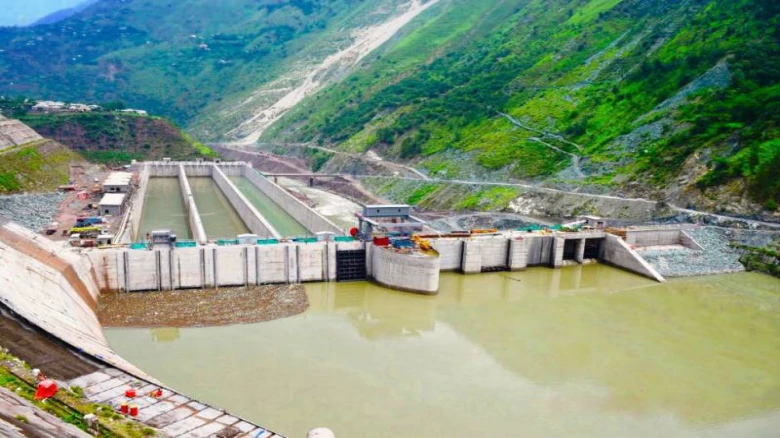National
On 26th November 2008, Mumbai witnessed one of the deadliest terrorist incidents in its

The suspension of maintenance and repair work at the Neelum Jhelum Hydropower Project (NJHP), near Muzaffarabad in Pakistan...
Digital Desk: Due to a lack of interest from China, Pakistan's plans to increase electricity generation to address the country's rising power shortfall appear to have failed, Asian Lite International reported.
The suspension of maintenance and repair work at the Neelum Jhelum Hydropower Project (NJHP), near Muzaffarabad in Pakistan-occupied Kashmir, is a prime example of this occurrence, which has now put Pakistan in a problem after the International Monetary Fund (IMF) failed to believe in its new debt management plan.
The 969-megawatt project began generating power in April 2018 but has remained idle since July 2022 due to a blockage in its 68-kilometer-long tunnel infrastructure. It appears that the Chinese have been unwilling to support its revival.
The Pakistani Water and Power Development Authority (WAPDA) began corrective measures as soon as the problem was identified by contracting M/s China Gezhouba Group Company (CGGC). Since then, the Chinese company has caused headaches for the Pakistani government by continuously postponing the repair work.
According to the CGGC, the plant and the Pakistani police's inability to offer trustworthy protection are equally to blame for the local protests.
Local demonstrators caused a Chinese enterprise to suspend operations and demobilize its employees in one case. Protesters' concerns include unequal power distribution, royalties, job loss, and environmental degradation.
However, Pakistani officials deny the allegations, stating that the Chinese did not follow the site's security standards.
The impasse is endangering the tunnel's structural integrity, prompting experts to issue a possible collapse warning. Tauseef Farooqui, the head of the National Electric Power Regulatory Authority, warned that the tunnel could collapse at any moment and that the consequences could be devastating.
According to some observers, the delay in making past-due payments by Pakistani officials is the root cause of China's lack of interest in the project.
Pakistan owes Chinese independent power producers (IPPs) approximately PKR300 billion, which has strained bilateral relations. After launching an investigation into its increasing power sector dues in April 2020, the Pakistani government pushed for renegotiating tariffs and current power purchase agreements.
The action eroded international investors' trust and prompted concerns about the country's long-term contract integrity.
Pakistan assured the IMF that as part of its negotiations with the fund, it would attempt to extract concessions from the China-Pakistan Economic Corridor (CPEC) power plants by lowering investment profit rates or postponing loan repayments.
As a result of Pakistan's continuous failure to pay its obligations, Chinese power sector investors got alarmed, and several of them began accusing Islamabad of violating the terms of the contracts.
They claim that the PKR's rapid depreciation and a large amount of arrears have significantly reduced their nominal return on investment. Pakistan's prolonged response to China's long-standing demand for the establishment of a revolving account isn't helping matters.
In order to officially authenticate the CPEC arrangement, the "Pakistan Energy Revolving Account" with a Rs 50 billion budget was established in December 2022.
Nong Rong, the Chinese ambassador to Pakistan, reportedly admitted that the Chinese corporations have continued to lag behind due to late payments to IPPs, a growing currency rate, and Nepra's "unhelpful behaviour toward them," according to a Pakistani daily Business Recorder.
Leave A Comment